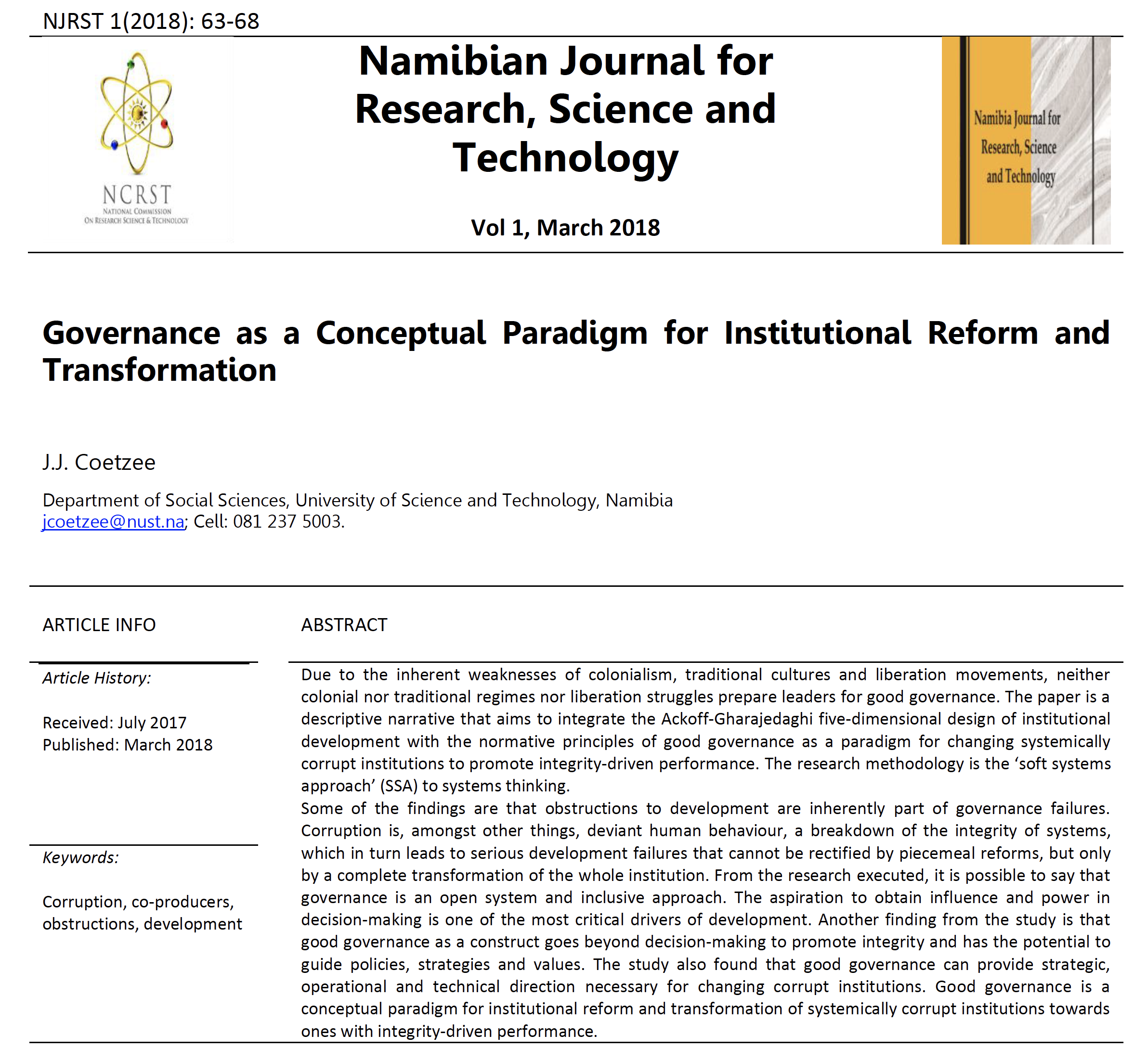Governance as a Conceptual Paradigm for Institutional Reform and Transformation
Main Article Content
Abstract
Due to the inherent weaknesses of colonialism, traditional cultures and liberation movements, neither colonial nor traditional regimes nor liberation struggles prepare leaders for good governance. The paper is a descriptive narrative that aims to integrate the Ackoff-Gharajedaghi five-dimensional design of institutional development with the normative principles of good governance as a paradigm for changing systemically corrupt institutions to promote integrity-driven performance. The research methodology is the ‘soft systems approach’ (SSA) to systems thinking.
Some of the findings are that obstructions to development are inherently part of governance failures. Corruption is, amongst other things, deviant human behaviour, a breakdown of the integrity of systems, which in turn leads to serious development failures that cannot be rectified by piecemeal reforms, but only by a complete transformation of the whole institution. From the research executed, it is possible to say that governance is an open system and inclusive approach. The aspiration to obtain influence and power in decision-making is one of the most critical drivers of development. Another finding from the study is that good governance as a construct goes beyond decision-making to promote integrity and has the potential to guide policies, strategies and values. The study also found that good governance can provide strategic, operational and technical direction necessary for changing corrupt institutions. Good governance is a conceptual paradigm for institutional reform and transformation of systemically corrupt institutions towards ones with integrity-driven perfor
Article Details

This work is licensed under a Creative Commons Attribution 4.0 International License.

